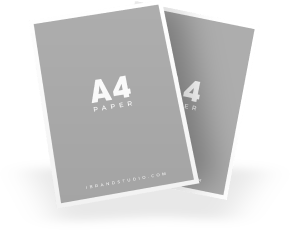Writer’s block happens to every college student. Stress, lack of motivation, distractions, laziness are all culprits that prevent the mind juices from flowing onto the computer screen or paper. While it is normal for every college student to experience this, it can be discouraging, especially around important deadlines. Therefore, to meet those class deadlines and become a better writer, you have to learn how to overcome writer’s block. As a former college student, and a communications major at that, I have experienced countless bouts of writer's block. Here is how I overcame it.
1. Freewrite
This may sound like the most obvious advice, but it is something I wish I had known early in my college career. When you feel as though you don’t know what to write about, just begin writing. For example, if you have a topic but lack a clear direction, start writing. Set your timer for 10-15 minutes and just start writing everything you know about the topic. Don’t worry about organizing your writing at this juncture, that will happen later.
When writing, everyone prefers to have a clear direction, but sometimes our minds become clouded and the direction might not become clearer until the writing begins. Sometimes freewriting, also commonly known as ‘word vomit’, can help guide you discover a direction. After you have written for 10-15 minutes, review your paper to see if an idea for your paper has emerged.
If so, you can begin organizing relevant parts of your writing into sections. Therefore, when your paper begins to develop, you can mold your freewriting instead of having to start from scratch.
2. Visit your Schools Writing Resources
While freewriting is a great writing technique, certain papers and deadlines might require a specific direction at the outset. This is especially true for those heavy-duty research papers. If you are struggling to figure out the direction/topic of your paper, visiting your college's writing resource center can be helpful. While every school is different, colleges will often provide students with free writing help/tutors.
At my university, this was my saving grace. Whenever I needed a helping hand in drafting papers, I booked an appointment with either a student tutor or librarian (if it was research-based paper). These sessions always helped me create a clear writing path. My dread and anxiety about writing a 10-page paper would quickly diminish because I knew I had access to the help I needed. Go to your school library, speak with a librarian and they will be more than delighted to provide you with available writing resources (digital and in-person).
>> RELATED POST: 7 Things You Will Absolutely Need For College
3. Read
Another great strategy to get over writer's block, is to read more on the topic or idea you are discussing in your paper. When creating a topic or idea for a paper, you want to ensure your ideas are not overlapping with another writer, and that you are either adding, creating, or expanding to the existing conversation.
During my final year of undergraduate studies, I learned that reviewing other writer's work could help inspire my topic and guide me in ways to develop a strong paper. For example, when I wrote my senior thesis, I read other theses and dissertations that related to my topic. This strategy inspired my thesis, Oversaturation of Social Media Influencer, after I re-analyzed the existing topic and developed my own contribution.
Be careful with this strategy. While you are reading and extracting inspiration from other works, it is important to appropriately reference those writers so as not to plagiarize.
4. Create A Positive Writing Space
Writing papers in college is a delicate but vital process in achieving your degree and becoming a better writer. Writing successful papers is important, and some of your most successful papers might be written in places you least expect it.
Therefore, the belief that the best place to write is at your college library is a lie. The library is high traffic for a lot of students, so they are often not the quietest or positive spaces one needs for writing.
Finding a positive writing space with sufficient WIFI on campus can help you produce your best work. For example, there are numerous vacant office spaces, quiet corners, gardens, smaller/ low traffic libraries in and around your college campus where one can be productive.
If you can't find those spaces, you can always create one in your dorm room. Your dorm room is a familiar and comfortable area that can provide you with positive writing space. But DO NOT write in your bed. Writing time will quickly turn into nap time. Find a corner in your room away from the noise, turn on some lofi-jazz study music, make the area bright, and allow time for the writing to flow.
>> RELATED POST: How to Support Racial Equality
Summary
As you enter college, during a pandemic, college writer's block is going to be different and feel more disastrous. Regardless, the papers are not going to change, and these helpful tips can still be useful as you navigate COVID-19. Becoming a great and productive college writer doesn’t happen overnight. There will be nights of frustration, tears, and the infamous “I'm dropping out” phase. But once you find that writing flow and secure resources to help you push past those hard moments, college papers will become just a little more bearable.



